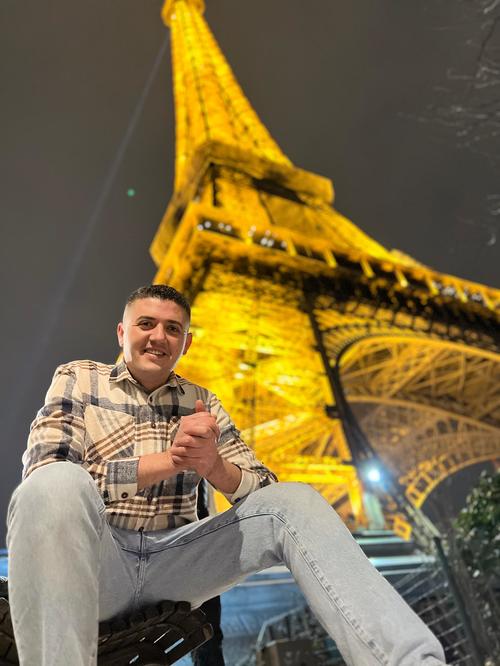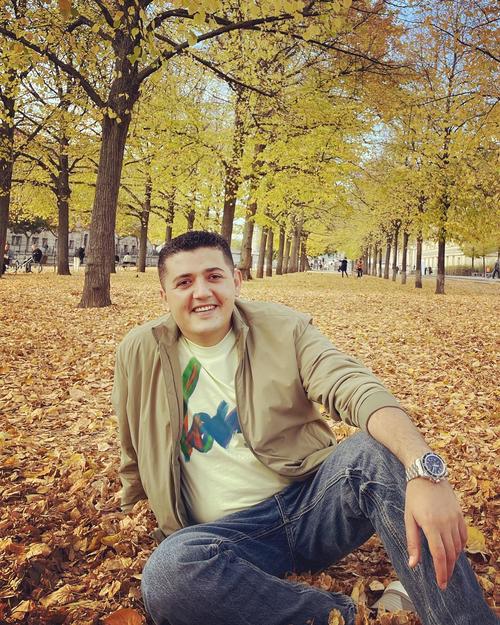Mohammad Rababah
PhD candidate in Archaeometry at Technische Universität Berlin, developing scientific methods to detect counterfeit ancient coins. Collaborates with Rathgen Lab, Berlin State Museums, Jordan Conservation Center and Ministry of Tourism and Antiquities
Jun 17, 2025
Mohammad Rababah’s doctoral research addresses one of the greatest challenges threatening cultural heritage in archaeology: the forgery of ancient coins, which historically served as vital monetary instruments in trade and politics. Counterfeiting has evolved beyond simple imitation to sophisticated techniques that make it extremely difficult to distinguish genuine coins from fakes. This undermines the credibility of museum collections and obstructs our accurate understanding of economic and political history.
The research aims to develop a comprehensive and precise scientific methodology to detect counterfeit coins made of gold, silver, and copper, employing advanced and non-destructive techniques. These include spectrometric chemical analysis to determine metal composition, electron microscopy to reveal surface microstructure, advanced imaging to highlight artistic details, and artificial intelligence algorithms to analyze data and identify forgery patterns.
This methodology seeks to provide practical and reliable tools that museum curators, researchers, and coin collectors can use to accurately verify coin authenticity, thereby protecting numismatic heritage from forgery and enhancing public and scholarly trust in exhibited artifacts.
Mohammad conducts his project within a robust international cooperation framework involving the Rathgen Research Laboratory in Berlin, the Berlin State Museums, and the Conservation and Restoration Center in Jordan, in close coordination with the Jordanian Ministry of Tourism and Antiquities. This multidisciplinary collaboration enriches the research quality by integrating archaeological expertise with cutting-edge scientific analysis.
He has been awarded the Elsa Neumann Scholarship, which supports outstanding doctoral candidates at the Berlin universities, followed by a research fellowship at the American Center for Oriental Research (ACOR), providing him with vital research resources and valuable opportunities for international academic exchange.
Before his doctoral studies, Mohammad earned a Master’s degree in Archaeology and Anthropology with a specialization in Conservation and Management of Cultural Resources from Yarmouk University, Jordan. His master’s thesis established a preliminary methodology for detecting counterfeit copper coins using physical and chemical analysis, laying a solid foundation for his current research.
Mohammad has extensive practical experience exceeding ten years in archaeological excavations, especially at the Al-Ula (Qurh) site with the German Archaeological Institute, where he was responsible for excavation supervision, artifact documentation, and the use of advanced techniques. He has also contributed to multiple research and educational projects in Jordan, with a strong focus on cultural heritage protection and combating illegal excavations.
Locally in Jordan, Mohammad holds distinguished field and scientific expertise, having worked with several research and academic institutions. He has participated in archaeological projects at various sites, collaborating closely with the Ministry of Tourism and Antiquities and Yarmouk University in artifact documentation and management, and has contributed to heritage awareness and protection initiatives aimed at combating illegal digging and destruction. Moreover, he has played an active role in field training and mentoring of local students and researchers, transferring modern technical and scientific knowledge in archaeological analysis, thereby strengthening national research capacities and raising archaeological practice standards in Jordan.
Through his work, Mohammad Rababah aspires to achieve a significant breakthrough in the authentication of ancient coins, contributing to a deeper understanding of economic and political history, protecting museums from the rising threats of forgery, and ensuring the preservation of cultural heritage for future generations. He receives ongoing support and guidance from his esteemed supervisors, Professor Dr. Stefan Simon and Professor Dr. Bénédicte Savoy.


